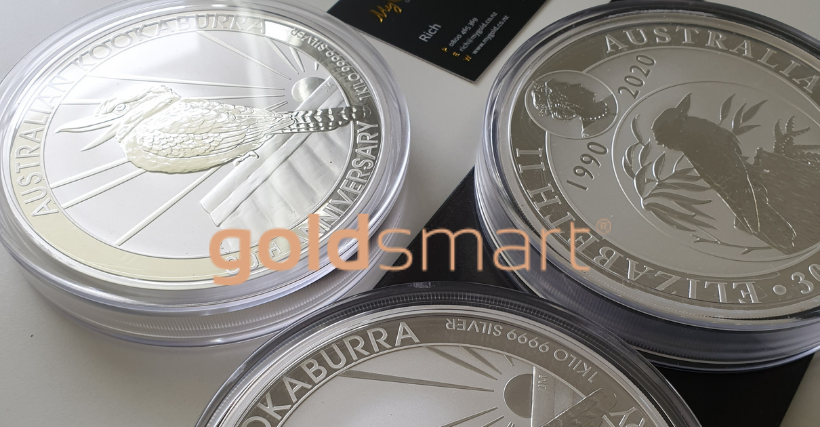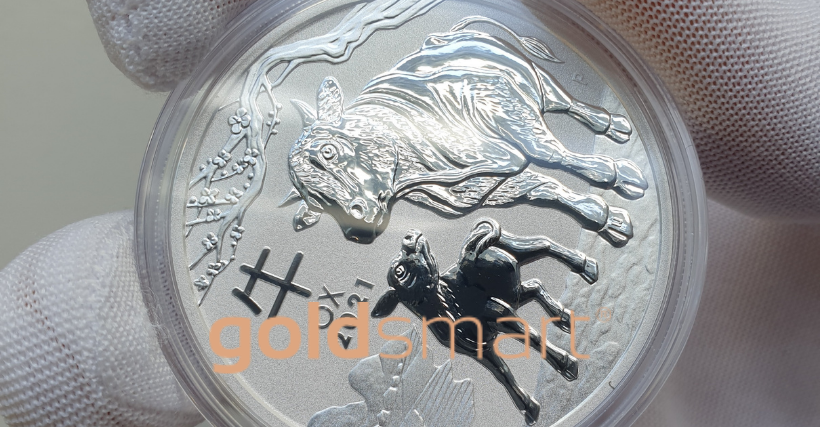
When considering the sale of precious metals in the form of government-issued coins, most people think of gold. That’s not a surprise; gold coins have been around for centuries and command a lot of attention. They are practically ingrained in our culture. For example, what did pirates bury on islands? Gold coins. What were armies paid with when they marched to war in ancient times? Loot and gold coins. How did folks used to test gold for purity? Bite it. The story goes on and on. However, gold isn’t the only metal that valuable coins are made of, and investors stand a good chance to make a few dollars off of another choice as well: silver.
Advantages
The first big advantage of silver coins is that there tends to be more of them. Silver was obviously a lower value metal than gold, and it was often needed to break down the value of a gold coin into smaller parts when it came to exchanging. Just like gold, silver can be melted and reformed into more of itself when combined with other silver. And silver can be integrated into an alloy with gold to make it stronger, which is usually the case with jewellery.
The second advantage silver coins offer is that they were used a lot longer as a common currency. So that means a good number of them can actually still be in circulation to be caught by a watchful eye. A common example is the silver U.S. quarter coin. These stopped being made in the 1960s, but they look just like other quarters from the same decade. So, if one is not paying attention, he could be handing over a silver bit worth $5 to $15 assuming it’s just worth 25 cents. Believe it or not, many of these coins are found by accident because they sound different when dropped. The silver metal is lighter.
Third, silver coins with age have a double bonus when it comes to selling them. Not only is the precious metal itself valuable, but the age of the coin can add collectability to it, creating a numismatic value on top of the base price. This has been a common reaction when silver coins have been found dating back to the beginning of the 20th century or earlier. And if one is lucky enough to find a silver coin from ancient times, which does happen on occasion, the value can go through the roof if the coin is in good condition and not worn down heavily.
Generally, however, most silver coins that are being collected tend to range from after World War I or so (1916) to about just the first year of World War II (1940). This particular window has some of the most valuable silver coins available, and there is plenty of demand for them.
Floating Price Points
Keep in mind, silver coins go up and down with the silver market as well. While the collectability side of the picture tends to be steady, the rise and fall of silver’s spot price tends to create quite a bit of fluctuation in coin value. There have been years when silver was quite low, and suddenly the precious metal starts shooting up. This kind of metal spot price shift will have a ripple effect on all silver coins, regardless of their unique history.

Finding Ways to Sell Silver
Interestingly, unlike gold, silver coins are not the easiest asset to sell. While there are plenty of venues that will buy gold coins of all types, silver coins don’t have such a strong market in general. Part of the issue has to do with the fact that silver coins don’t command as high a value as gold due to the differences between the values of the two precious metals. Palladium coins, for example, get more attention even though they are not gold, again because of the high value associated with the palladium metal.
Sellers will also have to balance going through the trouble of selling a silver coin for its collectability, which can take a while to find the right collector, or simply selling the coin for its silver value alone. Both together are obviously the best return, but a high demand asset is and always remains only worth what one can actually sell it for. For those who are interested in just selling silver bullion for the metal spot price alone, then it’s probably smarter to focus on newer coins as their cost will be closer to the spot market in value than older coins with rarity involved.
The best silver coins to sell for spot price tend to be modern bullion silver issues that are .999 percent in silver purity. These will be government-issued and stamped with both the official seals as well as the amount of silver involved and its purity level. Canadian Maple Leaf silver coins are a good example. If you’re dealing with older coins in a collection, then you need to watch out for junk silver coins. These were quite common prior to 1965 and the U.S. issued the largest number of them. They are still valuable for silver, just not as much as a pure coin. That’s because the junk silver coins only contain at best 90 percent of the precious metal.
The most common channels for selling silver coins tend to be professional precious metal buyers who deal in silver among other metals, numismatic dealers (coin collector shops), some jewellers, eBay and online auctions, pawnshops, and payday loan stores, in that order. Clearly, the best way to go is with a professional silver buyer. Gold Smart, for example, provides sellers a very high-quality environment that teaches folks what they have, how it is evaluated, provides transparent pricing, and avoids hidden fees or traps. There are other venues, but many tend to be some other kind of operation handling silver buying on the side. Jewellers will consider silver coins to some extent, but it is not their primary focus. To the extent they can get a coin for a good sale price, they will buy, but jewellers primarily want to make a profit on the matter at the expense of the seller. eBay and online auctions are literally private sales, but there is a thriving market for silver coins. And the fact that one has the entire world as a market makes for a lot of buyers. That said, you are dealing with massive risk, and lots of people lose their sale and their coin to scams and lying buyers. Finally, the last resort tends to be pawn shops and payday loan stores. These venues practically steal coins from people with their pricing, but they rely on people being desperate for cash.
Gold Smart Just Makes Common Sense
Given all the above, and the ease with which someone can sell silver coins in person or online with Gold Smart, it just makes sense to deal with them on all things involving silver coins. They will even point out when an item has a serious collectability benefit, letting the seller decide whether to still sell. That’s what it means to be a professional. Find out more by contacting Gold Smart today about your coins.